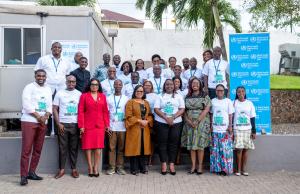Access to public facilities remains a challenge for PWDs in Ghana
Access to public facilities continues to be a challenge for persons with disabilities (PWDs) in Ghana, nearly 19 years after the passage of the Persons with Disability Act, 2006 (Act 715). Many government and private buildings still lack ramps, elevators, or accessible toilets, showing how enforcement has lagged behind policy.
A recent audit by the Ghana Federation of Disabilities (GFD), supported by the European Union, covered more than 60 public sites across 10 districts. The report found that only 14% of facilities had partial accessibility adjustments, and just 8% had toilets suitable for PWDs. Markets, schools, banks, hospitals, and transport hubs showed almost no compliance with accessibility standards.
The study also assessed 16 Organizations of Persons with Disabilities (OPDs). It revealed that most Metropolitan, Municipal and District Assemblies (MMDAs) had no funds or plans dedicated to retrofitting existing structures. None of the assemblies budgeted specifically for accessibility improvements.
According to GFD’s Monitoring and Evaluation Manager, Moses Fordjour, public transport poses an even greater barrier. Buses and other vehicles fail to meet basic accessibility requirements. He urged authorities to create stricter approval processes for transport operators and involve OPDs in developing inclusive mobility standards.
Although Act 715 was intended to protect the rights of PWDs, weak enforcement and lack of investment have left many excluded from everyday public services. Without action from government and local authorities, discrimination in access to public facilities will persist.








